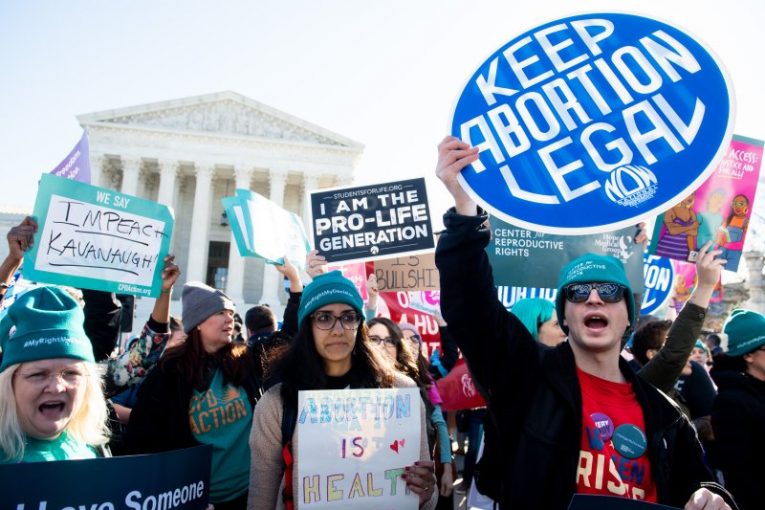
PASADENA, CA – The 9th U.S. Circuit Court of Appeals here last week upheld an Idaho abortion travel ban that prohibits minors from travelling out of state to obtain abortions without parental consent, according to the HuffPost.
This decision partially reversed a preliminary injunction from 2023 that had blocked enforcement of such a travel ban based on First Amendment rights.
HuffPost reported, despite the ruling being described as “devastating for young people in Idaho,” by national abortion rights groups, an attorney for the pro-choice plaintiffs said in a statement this is a “major victory in the ongoing case.”
According to this statement, the law is a small part of the larger case surrounding Idaho’s “abortion trafficking” laws. The merits of this case have yet to be argued and the law is not currently enforced.
The law was signed last year by Idaho Gov. Brad Little, and created a new felony called “abortion trafficking,” as stated in the article, which defines “abortion trafficking” as when an “adult (…) with the intent to conceal an abortion from the parents or guardian of a pregnant, unemancipated minor, either procures an abortion (…) or obtains an abortion-inducing drug for that minor.”
By the law, added HuffPost, the act of “abortion trafficking” involves “recruiting, harboring, or transporting a pregnant minor for an abortion,” the violation of which is punishable by up to five years in prison.
The article adds the sweeping language of the law attempts to criminalize any person who, without parental consent, is either transporting a pregnant minor with the intent of getting an abortion, or offering counseling to a pregnant minor on their reproductive health.
In a press release, Idaho Attorney General Raúl Labrador, a vocal opponent of abortion stated that the ruling was a “tremendous victory.”
Among other statements made in the press release, Labrador asserted, “Trafficking a minor child for an abortion without parental consent” puts the life of both the unborn child and the mother in “ grave danger, and we will not stop protecting life in Idaho.”
According to the HuffPost, the court ruled that the state of Idaho could enforce the “harboring” and “transporting” section of the law, but not the “recruiting” section.
The act of “recruiting” had been insufficiently defined by Republican lawmakers, and thus was found by the court to be “unconstitutionally overbroad because it prohibits a substantial amount of protected expressive speech.”
In a statement to HuffPost, Wendy Heipt, an attorney for the plaintiffs, stated this part of the ruling was “a huge victory.”
Heipt claimed this was the first abortion case at a federal level that acknowledged “a person’s right to freely discuss abortion even if obtaining care is illegal in a person’s home state.”
Heipt said it is important that minors now have the ability to discuss their options with a trusted adult.
The panel of judges asserted, said HuffPost, the act of providing information regarding abortions could not be criminalized, and that free speech regarding the encouragement of others to procure an abortion, or the logistical factorization to obtain one, would be protected within the state, even if abortion itself was illegal.
When explaining this concept, the judges used a hypothetical situation regarding a driver sporting a bumper sticker offering advice on how to obtain an abortion, and, reported HuffPost, offered advice on how to cross state lines to obtain an abortion, and offered the pregnant girl money to fund the procedure.
Because the man in this hypothetical had a driver’s license advertising his knowledge on the procurement of an abortion, he was deemed to have been recruiting young girls to have an abortion; an act that could have him prosecuted, said the court.
This ruling, added HuffPost, on the nature of “recruiting” individuals to have abortions set legal precedent for the number of laws being introduced in areas such as Alabama, Oklahoma, Mississippi and Tennessee, which aim to criminalize abortion trafficking.